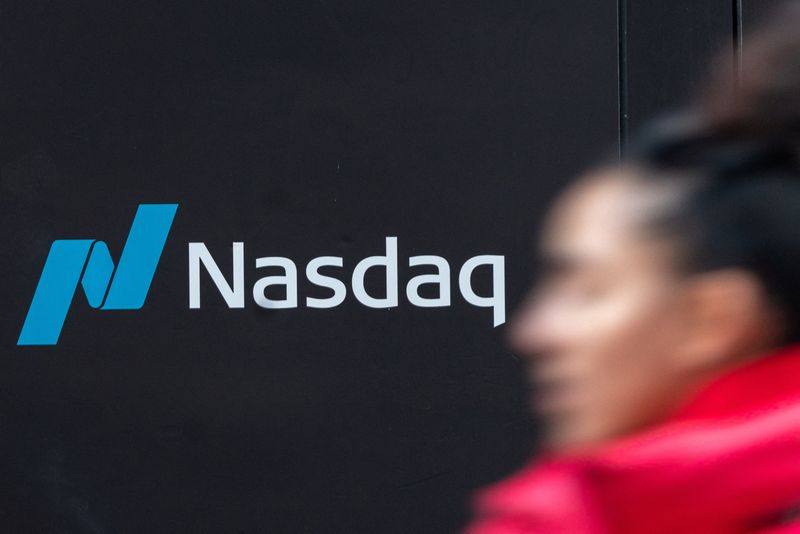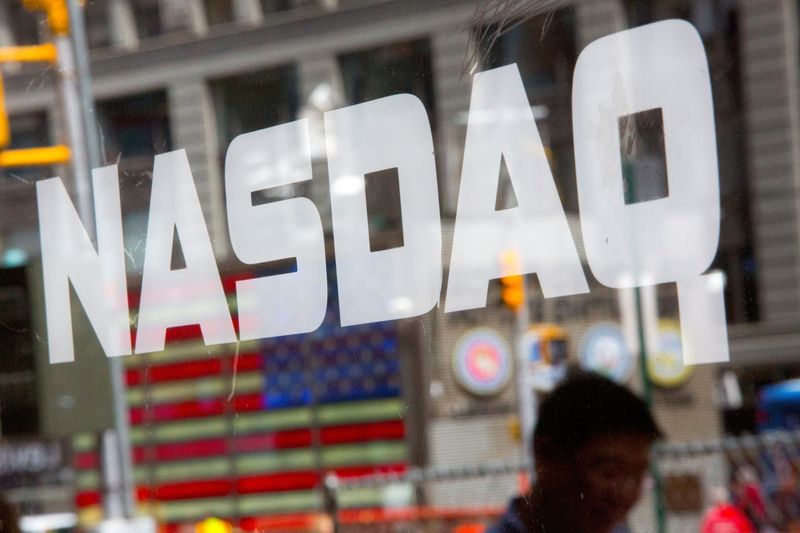(Reuters) -Shares of Wall Street's most valuable companies were mixed on Friday ahead of a rebalance of the Nasdaq 100 index to address the benchmark's "overconcentration."
Nvidia and Tesla (NASDAQ:TSLA) dipped 1.4% and 0.4%, respectively, while Alphabet (NASDAQ:GOOGL) added nearly 1% and Apple (NASDAQ:AAPL) and Amazon (NASDAQ:AMZN) were near unchanged.
Before trading begins on Monday, exchange operator Nasdaq will trim the weight of a handful of companies that make up close to half of the Nasdaq 100.
Nasdaq describes the Nasdaq 100 as a "modified market capitalization-weighted index," with company weights depending on their stock market value, while also applying rules to limit the influence of the largest stocks in the index.
The Nasdaq 100 includes 100 of the largest companies that trade on the Nasdaq exchange, and changes to the index will force investment funds that track it to adjust their portfolios and sell shares of companies that have their weight in the index reduced.
"We estimate that declining weights will drive passive net selling worth more than a day's average trading volume in GOOGL and more than one-third of a day's volume in MSFT, AMZN, and NVDA," Goldman Sachs (NYSE:GS) wrote in a client note on Monday.
J.P.Morgan index strategist estimated passive outflows of about $30 billion from mega-cap stocks.
Broadcom (NASDAQ:AVGO), which will likely see its weight increase in the Nasdaq 100 following the rebalance, rose 1.6%. The chipmaker currently makes up 2.4% of the index, according to Refinitiv data.
Microsoft (NASDAQ:MSFT), Apple, Nvidia, Amazon and Tesla have been among the biggest winners in the U.S. stock market's recovery this year, increasing their combined influence in the Nasdaq 100. That has helped the Nasdaq 100 surge 42% in 2023, compared to a 25% increase in the Nasdaq 100 Equal Weighted Index.
The Nasdaq 100 was near flat on Friday.

Nasdaq announced its plan to rebalance the index on July 7.
A special rebalance may be triggered if the aggregate weight of companies individually accounting for more than 4.5% of the index tops 48%, according to Nasdaq.
